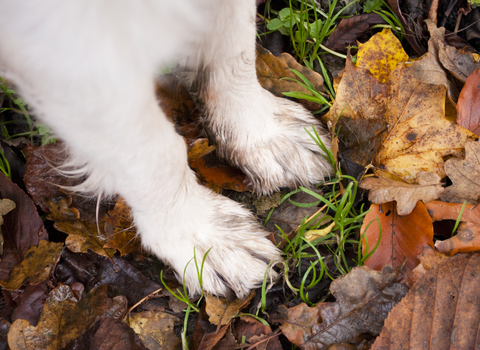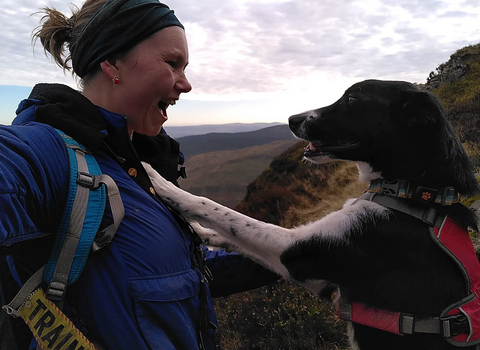Dogs are the UK's most popular pet. They bring companionship and joy to their owners. They also lead people to be more active and spend more time in nature, which is great! But unfortunately for both us and wildlife, dogs and nature aren’t always compatible. Dogs can have more of an impact on wildlife than many people realise, but there are steps we can take as responsible owners to help reduce these impacts.
Dog-related issues
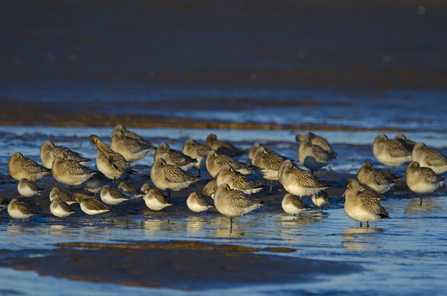
Mixed flock of bar-tailed godwits and dunlin © David Tipling/2020VISION
Disturbance
Even the friendliest dog is still shaped like a predator - and that's how wildlife sees it. An encounter with a dog can be hugely stressful for birds, mammals, reptiles and other animals. They have to use valuable energy running or flying away and lose time that could be spent feeding. If animals are disturbed again and again by different dogs or people, it can have an impact on their survival. Animals can be particularly vulnerable when they have young or are nesting. Limit the disturbance caused by your dog by keeping it on a short lead and giving wildlife plenty of space.
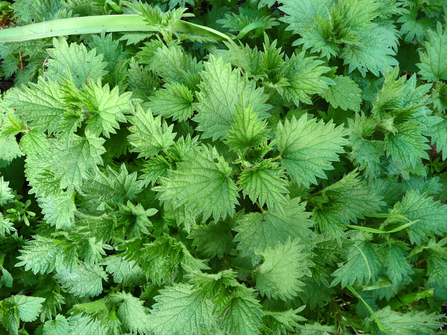
Stinging nettle ©Harry Green
Poo problems
It's important to always pick up your dog's poo. Dog poo isn't just unpleasant to stand on. It can transform wild places, threatening rare plants that are adapted to low nutrient levels. Dog poo (and wee) adds extra nutrients to the soil. As the nutrients increase, existing plants are crowded out by nutrient-loving plants like nettles. Nettles are great, but diversity is better. By picking up poo, you're helping wildflowers survive.
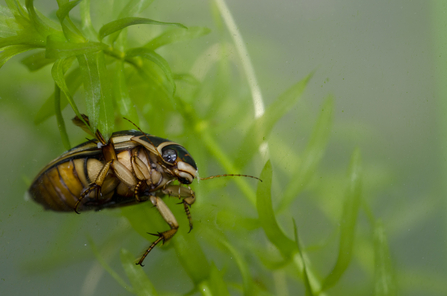
Great Diving Beetle ©Jack Perks
Pollution
Chemicals in flea treatments and other pet care products are a major source of pollution, particularly for ponds and rivers. They can leach into the water if a dog goes for a swim, harming aquatic wildlife. These chemicals can also end up in rivers via household drains, when owners wash their hands. Flea treatments may even be harming birds. A recent study found that by collecting animal hair for their nest, some birds were exposing their eggs and chicks to these chemicals. Nests with higher levels of chemicals were more likely to have unhatched eggs or dead chicks.


